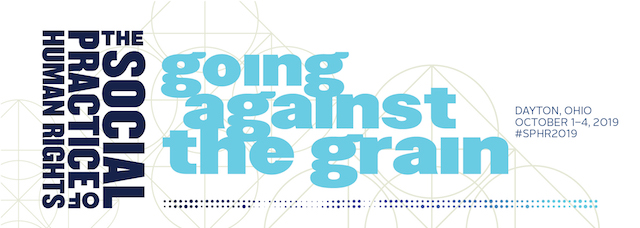Location
Paradigm Shifts: Migrant and Refugee Rights
Start Date
10-3-2019 11:00 AM
End Date
10-3-2019 12:30 PM
Keywords
refugee, human rights, migration, migration policy
Abstract
In a December 2018 message to a gathering in Rome, Pope Francis challenged attendees to place “human rights at the centre of all policies,” even if it meant going against the grain of popular opinion. The occasion for his message was the 70th anniversary of the Universal Declaration of Human Rights which, at least rhetorically, placed human rights at the center of the international order. Three years after its proclamation, the United Nations used the Universal Declaration as a key pillar on which it built its Convention Related to the Status of Refugees, thus making human rights a key component in refugee protection.
The appeal to human rights in this vein marked an important moment in the development of migration policy, but it was its institutionalization in political and civil structures that helped to operationalize this work. In recent years there have been increased efforts by various political actors to weaken national and internationally based institutions that had long structured governmental responses to migration streams. This opposition is partly rooted in the growth of nationalist and populist movements that are generally opposed to globalization and international cooperation efforts, and which instead affirm the centrality of national borders and a suspicion of foreign influences. One consequence is the weakening of protections for refugees and other migrant populations, and the attempted abdication of a human rights paradigm as a defining element in migration policy.
Examining political developments in both an American and European context to highlight this tendency, this presentation will focus on the way in which a human rights paradigm has traditionally informed refugee and asylee protection, how it has been operationalized through institution building, and explore contemporary efforts to deconstruct the institutions that have actualized this commitment. Understanding these developments is crucial to grasping the role that human rights will continue to play in migration policy moving forward.
Author/Speaker Biographical Statement(s)
Todd Scribner is the Education Coordinator at the United States Conference of Catholic Bishops’ Department of Migration and Refugee Services. His work examination the intersection of Catholic social thought, migration policy, and U.S. history.
Included in
Migration Studies Commons, Other Public Affairs, Public Policy and Public Administration Commons, Policy History, Theory, and Methods Commons, Politics and Social Change Commons
Institutionalizing Rights: The Rise and Fall of the Human Rights Paradigm in Managing Migration
Paradigm Shifts: Migrant and Refugee Rights
In a December 2018 message to a gathering in Rome, Pope Francis challenged attendees to place “human rights at the centre of all policies,” even if it meant going against the grain of popular opinion. The occasion for his message was the 70th anniversary of the Universal Declaration of Human Rights which, at least rhetorically, placed human rights at the center of the international order. Three years after its proclamation, the United Nations used the Universal Declaration as a key pillar on which it built its Convention Related to the Status of Refugees, thus making human rights a key component in refugee protection.
The appeal to human rights in this vein marked an important moment in the development of migration policy, but it was its institutionalization in political and civil structures that helped to operationalize this work. In recent years there have been increased efforts by various political actors to weaken national and internationally based institutions that had long structured governmental responses to migration streams. This opposition is partly rooted in the growth of nationalist and populist movements that are generally opposed to globalization and international cooperation efforts, and which instead affirm the centrality of national borders and a suspicion of foreign influences. One consequence is the weakening of protections for refugees and other migrant populations, and the attempted abdication of a human rights paradigm as a defining element in migration policy.
Examining political developments in both an American and European context to highlight this tendency, this presentation will focus on the way in which a human rights paradigm has traditionally informed refugee and asylee protection, how it has been operationalized through institution building, and explore contemporary efforts to deconstruct the institutions that have actualized this commitment. Understanding these developments is crucial to grasping the role that human rights will continue to play in migration policy moving forward.



